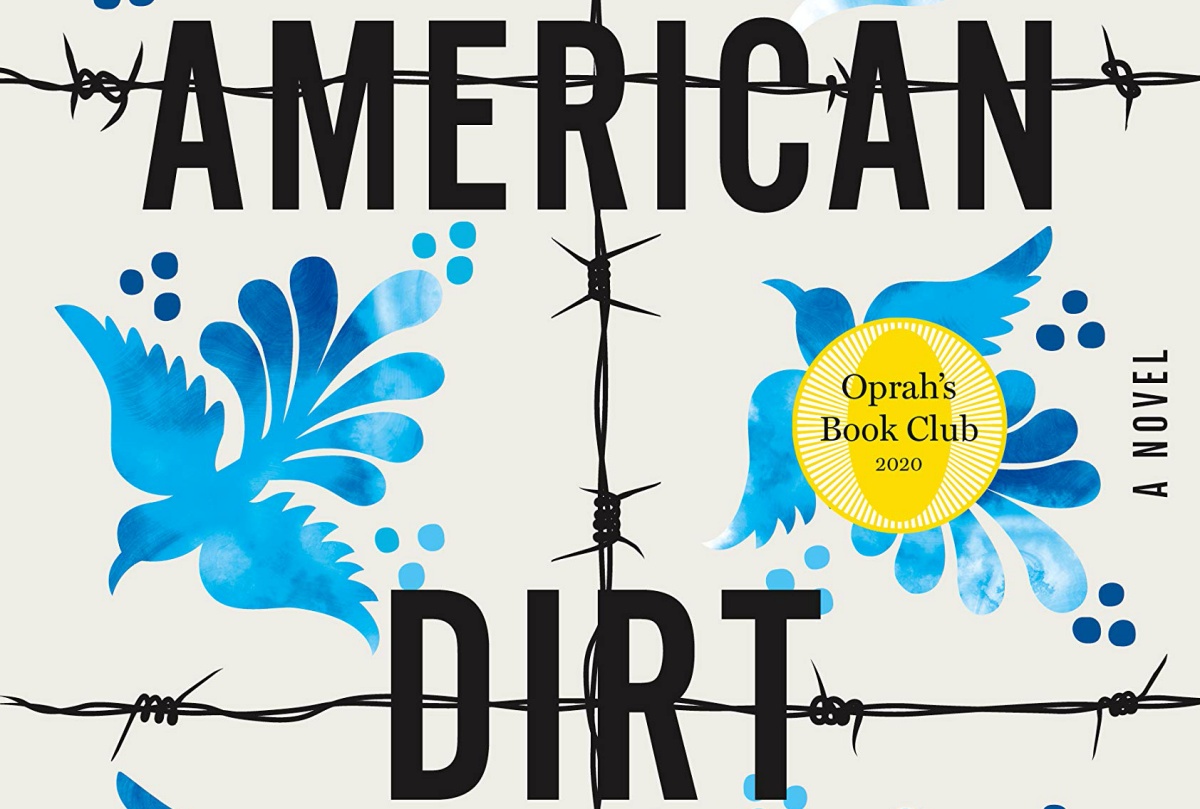Why This Oprah Book Club Pick Became So Controversial

Upon its initial introduction, American Dirt was touted as one of the best books of 2020. It received rave reviews ahead of its publication, with many anticipating it to be the “defining” book of the year. American Dirt was on the radar of literary giants, made The New York Times Bestsellers list, received praise from the likes of The Washington Times and NPR, and was chosen for Oprah Winfrey’s Book Club.
Even big names in literature like Stephen King and Don Winslow spoke out in support of Jeanine Cummins’ novel. King called her novel “extraordinary,” while Winslow, the author of Savages, said it was the “Grapes of Wrath of our time.” As a result, the novel quickly became one of the most anticipated books of 2020. American Dirt even sparked an auction bid, which Flatiron Books won in a seven-figure deal, and was ordered for an initial printing of half a million copies.
However, shortly after its debut, American Dirt started to receive mixed reviews from critics. Mexican-American writer Myriam Gurba was one of the first to write a negative review of the novel, which was initially rejected by Ms. Magazine because she allegedly didn’t have the “fame” to pen such a negative review. Gurba’s review ended up being published by Tropics of Meta and raised awareness of the harmful stereotypes the book perpetuated. Other reviews poured in accusing Cummins of “fetishizing” the traumatic experiences of immigrants and pointing out the blatant wrongness of a European-born woman in the U.S. attempting to tell the story of Mexican immigrants.
Why is American Dirt controversial?
Some opponents and proponents of American Dirt have conceded that Cummins likely meant well with her depiction of Mexican immigration. However, the main criticism of the book centers on the fact that someone who doesn’t identify as Hispanic or Chicano chose to write a novel about the immigrant experience at the Mexican border. Much of the controversy also has to do with Cummins’ identity, and accusations that she may have misrepresented herself to her audience. In a 2015 essay for The New York Times, Cummins identified as white. “But,” despite having a Puerto Rican grandmother and some Lebanese heritage, she wrote, “in every practical way, my family is mostly white. I’ll never know the impotent rage of being profiled, or encountering institutionalized hurdles to success because of my skin or hair or name.”
Although Cummins admitted to not knowing the firsthand experiences of those who have suffered from racism, she reiterated that it was important for “white people to join the conversation about racism.” However, while promoting American Dirt in 2019, Cummins suddenly identified as Latina. While one’s understanding of their racial identity can change over time, the noticeable switch didn’t sit well with the Latino community. Many Latina and Latino writers struggle to have their voices hear, but a white woman who began identifying as Latina seemingly to promote a book lands a seven-figure book deal?
Then there’s the matter of the actual content of American Dirt. Many get caught up in the emotional and dramatic story; the “heart-wrenching” tale of a family fleeing Mexico and becoming undocumented immigrants in the U.S. due to cartel-related violence. Many have spoken about the book playing out like a melodramatic, unrealistic soap opera that does not at all represent the migrant experience. The protagonist owns a bookstore and has a small fortune, is oblivious about every detail of Mexico (despite living there), and sees her own country through the eyes of an American tourist. Meanwhile, from the opening page, the book reads like a Narco-thriller with assassins, a massacre, and carnage. Chicano writer and professor David Bowles described American Dirt as “trauma porn.”
What the American Dirt controversy means
The American Dirt controversy might be difficult to understand, in part because the book has received mixed reviews. Though it sparked widespread criticism, Cummins’ book also received a lot of praise. It even earned the coveted honor of being named an Oprah Winfrey Book Club pick and, although Cummins acknowledged the criticism, she ultimately chose to stand by her story. Meanwhile, the book cover itself touts the rave reviews it received from some big literary figures. Plus, there’s the question of whether it’s the job of authors to place themselves into a character’s shoes, even if they don’t explicitly identify with the character.
The large reason for the divided response comes from the fact that American Dirt did hold some appeal—specifically, it appealed to white Americans who are oblivious to the experience of immigrants at the border. As a result, they enjoyed seeing the topic through the lens of cheap entertainment while feeling good about supposedly becoming educated and enlightened about the plight of immigrants. However, many immigrants and individuals in the Latino community have slammed the book because it is their story that has been misrepresented, distorted, and filled with stereotypes by someone who doesn’t identify with them.
Cummins’ race isn’t the problem. Rather, it’s the fact that she misrepresented herself in an effort to claim a closeness with her characters. Another issue is the fact that, although she tasked herself with writing about such a sensitive topic, Cummins didn’t put the care and research into the story to make it authentic and accurate. And finally, there’s the inherent unfairness of the whole situation. Cummins’ book was favored and praised because of the white-dominated literary and publishing industry. Meanwhile, many Latino writers and other writers of color with authentic voices struggle to be heard or to make waves in the literary industry—an industry that would put millions into a white woman’s melodramatic and stereotypical portrayal of the immigrant experience, but would not put the same effort into a poignant, firsthand account by a Latino writer.
(featured image: Flatiron Books)
Have a tip we should know? [email protected]